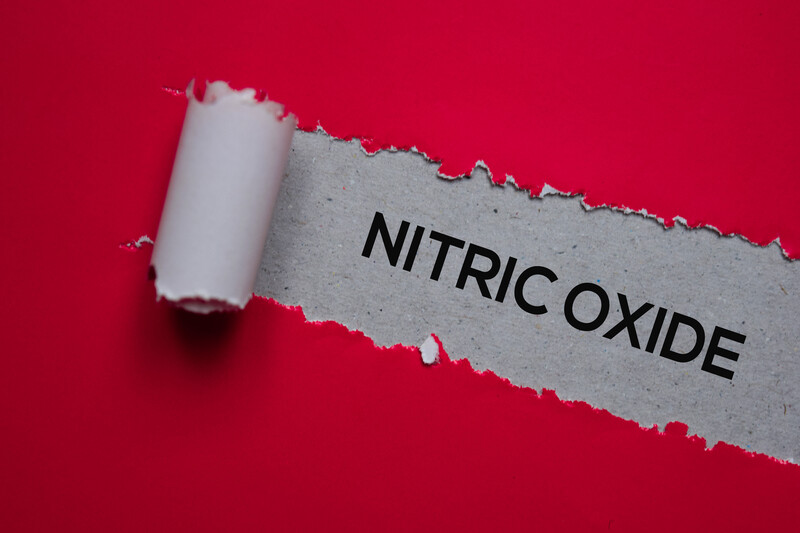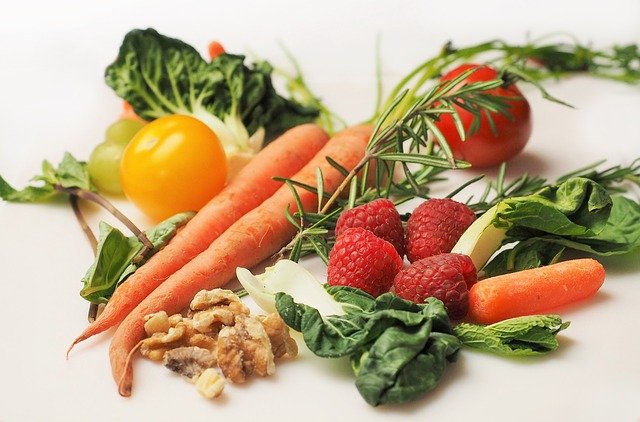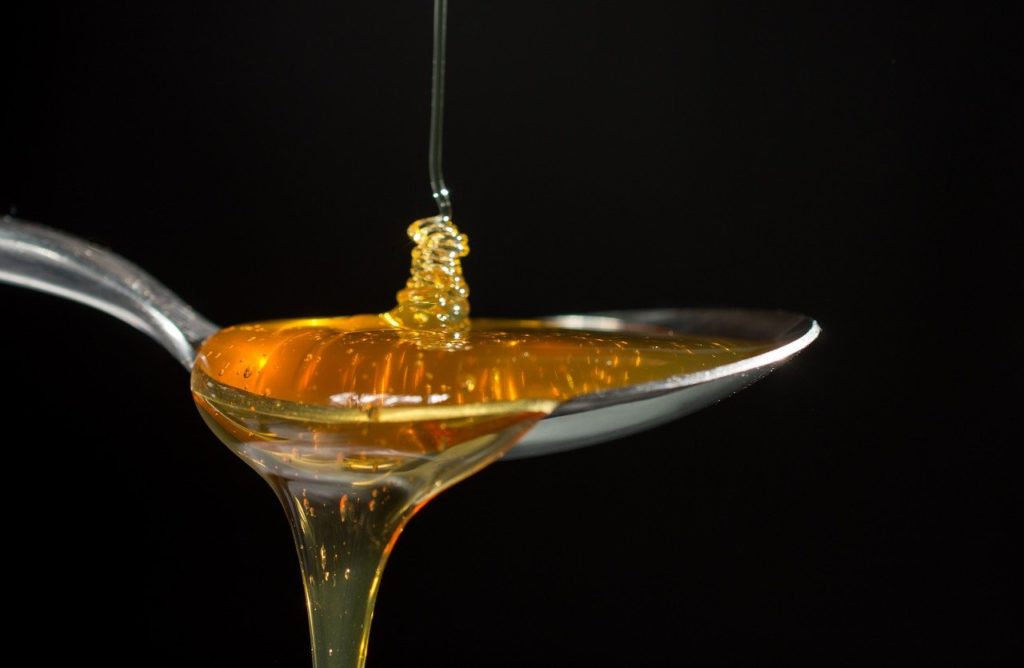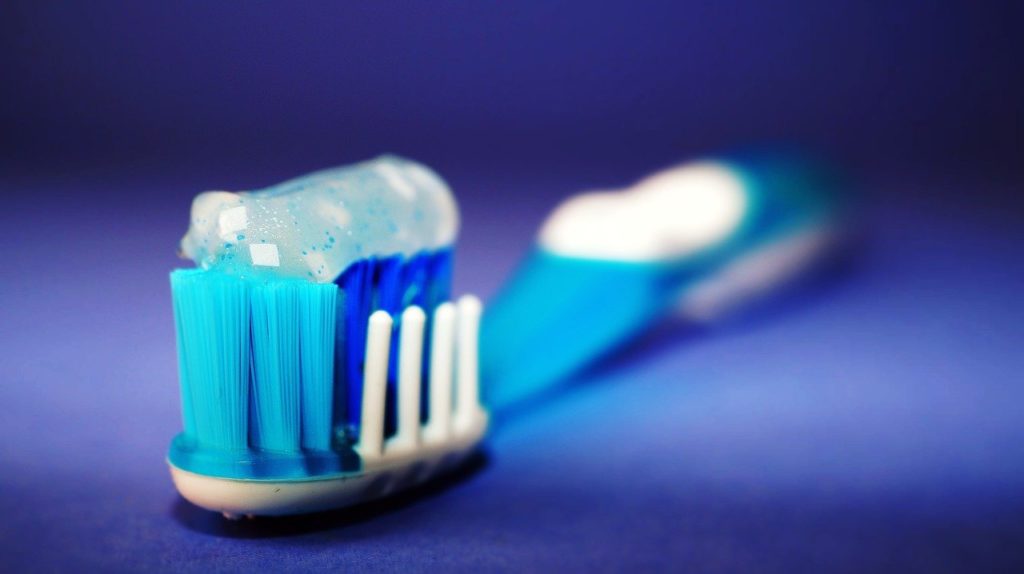(Article medically reviewed by Dr. Zac Hyde M.D)
While infinitely more complex, the male body is not unlike any other machine. That is, all of its various processes and parts need a specific set of ingredients to function.
When it comes to “manufacturing” erections, one of the essential ingredients is nitric oxide. In this article, we’ll discuss what this is, why you need it, and – most importantly – how you can boost nitric oxide naturally.
Nitric Oxide Fuels a Healthy Erectile Response
I’ve written several articles on nitric oxide which I’ll link to inside this article If you’re looking to expand your knowledge, I highly recommend you read these posts once you’re finished here.
In the meantime, let’s go over some of the essential points below…

Nitric oxide is a gas that acts as a “signaling molecule” in the body. Though it has many different jobs, it is notable for sending arousal signals from your brain to the penis muscles. This causes them to relax, allowing them to fill with blood and stiffen.
Nitric oxide is produced in the body, but not by the body (at least, not in significant amounts). This means that we need to seek out dietary or supplementary sources if we want to keep our levels (and our erections) up.
Nitric oxide deficiency is one of the leading causes of erectile dysfunction and occurs for a number of reasons. The most common include an unhealthy microbiome, a lack of mouth bacteria, smoking, obesity, and high blood pressure.
The non-sexual signs of low nitric oxide include vision problems, heat regulation issues, increased stress, memory loss, and extended recovery times after working out.
As the condition worsens, men usually start to notice signs of blood flow issues. From cold fingers and toes to “pins and needles” sensations, which are usually accompanied by the first signs of erectile dysfunction.
There are many solutions to low nitric oxide, but – as you’ll see below – many of them have to do with your diet.
It helps if you take my advice from the intro and begin looking at your body as a machine. This makes it easier to evaluate what you’re putting into it and and what you’re getting out as a result.
How to Boost Nitric Oxide Naturally (20 Tips)
1: Eat Vegetables High in Nitrates

If you’re the kind of guy who thinks it’s lame to eat your veggies, it’s time you realized that your dear old granny was right.
While many of us still erroneously associate “nitrates” with processed meat and bacon, the real source of this bonerific biofuel is veggies.
Among the foods richest in nitrates are arugula, oak leaf, bok choy, chard, and spinach. In fact, arugula (or “rocket” if you’re outside the US) boasts a whopping 480 mg of nitrates per 100 grams.
So if you’ve been avoiding those “bitter greens,” get yourself some ranch dressing and head over to the veggie aisle.
Some “non-green” vegetables you need to consider adding to your diet include things like rhubarb, carrots, and beets.
In the case of the latter, you’ll find one of the best sources of nitrates in the world. In fact, according to some studies, beetroot and beet juice are essentially “purple Viagra.”
Suddenly, it’s not so hard to see why Angela couldn’t say no to a night on Dwight Schute’s beet farm.
2: Consume Plenty of Antioxidants
It’s more or less impossible to go a day without hearing about the dangers of free radicals.
Basically, these are “unusable” molecules that can damage our cells, and they are the result of everything from pollution and industrial chemicals to exposure to carcinogens.
Fortunately, antioxidants are able to keep these pesky, disease-causing elements in check – providing we get enough of them.
In terms of nitric oxide, antioxidants have a very interesting effect. Specifically, they help prolong the extremely short lifespan of nitric oxide.
This improves the odds that your body will get the chance to use the gas before it disappears.
Examples of high antioxidant foods include a wide range of fruits, such as blueberries, strawberries, pomegranates, and most citrus fruits.
Going back to the veggie aisle, you can load up on leeks, onions, garlic, carrots, and spinach too. The more of these foods you add to your diet, the more nitric oxide will be available for your body to use when you need it.
3: Try Humming (Just Before Sex)
This one might seem a bit out of left field (and it sort of is), but that doesn’t mean that it doesn’t work.
You see, one particularly insightful study revealed how the mucosa in your nose and sinuses plays a big part in nitric oxide release.
Interestingly enough, these levels can be increased (temporarily) if a person hums while exhaling.
Again, the short half-life of nitric oxide is problematic, so you should confine your little humming exercises to just before you get down to business.
We’ll discuss the connection between your mouth and your NO levels a bit more as we go on, but it’s a good idea to start wrapping your head around this concept sooner rather than later.
4: Eat Honey to Boost Nitric Oxide Naturally

Honey is a nutrient-rich substance, despite the fact that it is essentially pure sugar.
Again, we’re talking about a serious source of antioxidants, flavonoids, and phenolic acids, all of which play a significant role in reducing premature aging signs and promoting heart health.
However, in one study, eating honey was shown to act as a potent anti-inflammatory in rodent test subjects.
A similar test was performed on sheep and found that raw honey contained extremely high levels of NO metabolites. In fact, it’s believed that four teaspoons of honey can boost nitric oxide levels by as much as 50%.
5: Throw Away Your Mouth Wash
Back in our introduction, we mentioned that one of the causes of low nitric oxide was “lack of mouth bacteria.”
If this struck you as odd, you’re not the only one. However, as you’re about to see, the reason behind this somewhat curious diagnosis has everything to do with your “microbiome.”
This term refers to the billions and billions of good bacteria that live in your stomach and intestines.
It’s commonly cited in instances where people suffer frequent gastrointestinal problems, as they have either too little or simply the wrong kind of bacteria to help them break down food.
However, your microbiome also extends to your mouth, where oral bacteria play a major role in releasing nutrients (particularly nitric oxide) from the things you eat.
But here’s the problem, your quest for fresh, minty breath might actually be killing all of your NO-producing microorganisms.
So if you’re using antiseptic mouthwash regularly, it could end up having a big impact on your erections.
And the solution?
Ditch the mouthwash and just brush your teeth and scrap your tongue if necessary.
6: Take Vitamin C to Boost Nitric Oxide Naturally
Few nutrients are more widely prescribed than Vitamin C, particularly by elderly mothers and grandmothers.
Of course, as with most old wives’ tales about health, this one is actually rooted in truth.
Not only has Vitamin C been shown to be very effective against the common cold, but it can also protect your immune system, heart, and skin.
And since it’s on this list, you can safely assume that this powerful little antioxidant has some serious implications for your nitric oxide levels too.
According to this study, long-term Vitamin C treatment helps your body better synthesize nitric oxide, improving vasodilation and, potentially, erection quality.
The main problem with Vitamin C, however, is that it can be toxic if taken in high amounts. Around 2000 mg a day is considered the limit, but if you want to optimize your results, we suggest aiming for around 500 mg instead.
And be sure to check your other supplements first, as Vitamin C is a common ingredient in many cases.
7: Eat More Garlic

I can understand where you might start to think I’m actually trying to sabotage your love life.
First, I tell you to ditch your mouthwash, and now I tell you to eat more garlic. I know it seems like a lot to take in, but science has a plan here.
You see, garlic is a potent nitric oxide synthesizer, with some studies showing that it can boost your NO levels by 40% within one hour!
In fact, you may have noticed that garlic is getting a lot of attention from the heart-healthy communities.
Not only does it lower blood pressure, but it also helps boost exercise tolerance in individuals with existing heart problems.
Best of all, you can combine it with Vitamin C to maximize those nitric oxide benefits.
8: Don’t Be a Mouth Breather
This is good advice to take whether you’re low on nitric oxide or not. After all, nobody likes staring down your gaping maw (especially after you ditch that mouthwash).
But here’s the thing: doctors estimate that around 80% of the population breathes improperly, which messes up the gasses in our body.
For instance, when you breathe through your mouth, you restrict the amount of oxygen your body culls from the air.
However, you also bypass the sinus, which (as we discussed earlier) is a key area for nitric oxide production.
Believe me, entire studies have been published on the way mouth breathing affects your health and your heart. Luckily, it’s an easy habit to break.
9: Eat Dark Chocolate to Boost Nitric Oxide Naturally
If you hate veggies, despise beets, and would rather die than devour raw honey, I have some good news for you.
You see, dark chocolate has also been cited as a great source of nitric oxide. In fact, consuming around 30 grams a day has the potential to significantly improve your NO levels and your rate of NO synthesis.
This has to do with the fact that cocoa is rich in special compounds known as polyphenols.
These are anti-inflammatories and antioxidants mostly, and they can seriously benefit your heart function. At the same time, they help your body produce more nitric oxide from both the chocolate and the other foods you eat.
Just don’t attempt to cheat and eat milk chocolate instead. These snacks usually only contain about 30% cocoa, while dark chocolate tips the scales at about 85%. Sure, it isn’t as sweet – but the results are.
10: Meditate Before Sex

If you’re one of those guys who thinks he’s too cool for the school of Eastern medicine, it’s time to get with the times. After all, meditation is one of the most powerful forms of exercise on the planet.
Not only can it reduce stress, but it promotes emotional health, fights age-related memory loss, and can aid in controlling pain.
Then there are the more direct benefits.
You see, studies like this one from 2005 found that meditation can have a rather dramatic effect on serum nitric oxide activity.
In fact, those subjects who participated in mediation regularly showed a much higher concentration of NO than those who did not.
A similar study – this time aimed at measuring meditation’s effects on well-being – found that both nitrate and nitrite levels were elevated. More importantly, the synthesis of nitric oxide was increased.
As an added benefit, both studies found that patients had lower stress levels and reduced blood pressure. This, as we know, can be a big help in the bedroom.
So next time you’re feeling a little bit of performance anxiety, consider taking a few minutes to calm your mind and your body.
11: Drink Red Wine
Before you assume I’m giving you permission to start downing vino like a Roman emperor, you should read over all the articles I’ve done about erectile dysfunction, testosterone levels, and alcohol.
That said, you’ve probably heard that red wine is quite a bit different from your basic everyday booze. As it turns out, it might actually be downright good for you (and your NO levels).
According to one study, red wine has a protective effect on the vascular system as a whole. Specifically, it helps increase the endothelial nitric oxide formation we discussed at the beginning of the article.
That said, it’s worth noting that the exact wine used in this particular study was an alcohol-free Cab Sauvignon from Brazil.
Fortunately, it isn’t the only one out there.
This study from 2003 used the real deal, and it found the same vasoprotective effects were present, providing the drinking was done in moderation.
In the end, there’s simply no denying the high antioxidant and polyphenol levels in red wine.
12: Get More Natural Sunlight

Since the pandemic struck back in 2020, we’ve all spent more time inside than the average Victorian vampire.
Though there are many potential medical repercussions for this reclusivity, one that you don’t often hear about is the impact it might have on your nitric oxide levels.
A quick search of recent medical studies will show you a clear correlation between UVA and UVR and NO release.
In fact, among other things, UVA-induced photolysis of nitric oxide may help protect against the damage done by changes in blood pressure.
In one model, the process was responsible for more than 80% of the NO found in the subject’s bloodstream.
While there will always be such a thing as “too much sunlight,” it’s much more damaging to your overall health if you get too little. So keep the curtains open, friends. Otherwise, you might not enjoy the side effects.
13: Exercise to Increase Nitric Oxide Naturally
Over the years, I’ve been a huge proponent of exercise, particularly high-intensity interval training, or HIIT.
While all exercise is good for you, this particular approach to working out has massive hormonal benefits and – as we’ll see in a second – can help provide a nice nitric oxide boost.
What I’m talking about is called the “nitric oxide dump.”
You see, when you exercise particularly hard, your muscles and tissues will start to run out of oxygen. This is accompanied by an aching feeling as well as a massive release of NO.
The goal is to open up your blood vessels so that more of the good stuff can get where it needs to go, but the side effects last long after you’ve left the gym.
In one rodent study, regular HIIT training was shown to increase nitrate, nitrite, and NO levels by 35%, 149%, and 98%, respectively.
Pretty impressive results after only eight weeks of training.
14: Avoid SSRi’s (especially Paxil & Pexeva)
It’s no secret at this point that depression and anxiety medications will pretty much put thy kybosh on your sex life.
However, SSRis like Paxil, Pexeva, and Zoloft are among the worst things you can put in your body if you want to maintain healthy nitric oxide levels.
And while it isn’t an option for everyone, I strongly suggest you do whatever you can to avoid them.
You see, selective serotonin reuptake inhibitors have been shown to also inhibit cytochrome P450 activity, which restricts the synthesis of nitric oxide.
In one study, patients who suffered from ischemic heart disease and received paroxetine as depression treatment saw significantly decreased nitrite and nitrate levels across the board.
15: Switch to Fluoride Free Toothpaste

The further we go in our discussion, the more often issues related to oral health crop up.
In this case, we’re not talking about that powerful anti-bacterial mouthwash. Instead, we’re focusing on fluoride, a popular enamel strengthener that’s been put into dental care products for decades.
But here’s the deal: fluoride is something you want to limit your exposure to.
Specifically, it’s been shown in some studies to suppress nitric oxide synthesis rather significantly, especially with prolonged exposure.
And while you’re not supposed to swallow toothpaste, of course, it’s nearly impossible not to have some residue stay in your mouth afterward. That’s why I recommend just switching up to a fluoride-free version.
16: Consume Omega 3 Fats
If you’ve been paying attention to my writings over the past few years, you’re already well aware of how good Omega 3 Fatty Acids are for our general health.
Well, now it’s time to talk about how this particular nutrient affects your nitric oxide levels.
As we’ve already mentioned, one of the biggest issues associated with heart disease, vascular deterioration, and erectile dysfunction is high blood pressure.
And as we know, reducing blood pressure requires high levels of endothelial nitric oxide.
Fortunately, Omega-3 has been shown in countless studies to directly impact the release of nitric oxide, ensuring a healthy endothelium (and a healthy cardiovascular system).
While that’s all well and good, it’s important to remember that Omega-3 is not the only ominous-sounding nutrient in the game.
There’s also Omega-6, which has been shown to optimize nitric oxide synthesis when it is properly balanced with its little brother. In fact, if this balance gets thrown off for too long, it can actually lead to ED anyway!
The answer is to consume foods rich in both nutrients, aiming for a 2-to-1 balance of Omega-6 over Omega-3.
17: Watch Your Salt Intake to Boost Nitric Oxide Naturally
The connection between salt intake and various cardiovascular problems is pretty well established by now.
However, you might not be aware of how salt can dry up your nitric oxide levels as fast as a wayward snail.
You see, studies like this one have found excessive salt intake to drastically reduce endothelial NO synthesis while contributing to hypertension and other vascular problems.
To make matters worse, you don’t need to eat popcorn for every meal to experience this anti-nitric oxide effect. Some people are naturally sensitive to salt, which puts them at an even higher risk of NO inhibition.
Of course, the biggest problem here is that you don’t just need to keep an eye on the salt you add to foods, but the salt that’s already present in the things you eat.
Basically, if you’re the kind of guy who lives on microwavable dinners and canned soups, you’re likely starving for nitric oxide as we speak.
18: Quit Your Tobacco Habit

You mean to tell me that you’re still smoking?
If so, that means you haven’t read any of articles I’ve written about how tobacco can kill your sex drive, damage your blood vessels, and atrophy your penis.
Well, after you read the article come back here…
Because smoking cigarettes and cigars has indeed been shown to drastically reduce the NO levels you exhale, especially right after you take a puff.
The weird thing about this is that the researchers still haven’t nailed down exactly why this happens. However, they are perfectly aware of how quickly smoking can destroy your endothelium.
To make matters worse, nitric oxide actually plays a role in keeping you addicted to tobacco.
In this study, it was found that the body starts to acclimate to getting its NO from the cigarettes instead of from the food sources. This means it actually starts shutting down the synthesis process while boosting your cravings to make up for it.
19: Lose 10 Pounds (or more)
There is a direct relationship between your weight and your nitric oxide levels.
You see, research shows that nitric oxide stimulates fat burning and metabolic activity, while losing weight promotes a healthier cardiovascular system and helps turbocharge your endothelial NO operations.
So if you’ve got a little spare tire around the waist, getting rid of it could cause a significant change in more ways than one.
However, if you’re more than just a little overweight, you might want to take more dramatic measures.
Studies show that obesity leads to major problems with vasodilation.
Not only does this cripple your NO release, but it leads to a wide range of diseases and chronic conditions.
20: Drink Apple Cider Vinegar
Back in the old-timey days, good old ACV (apple cider vinegar) was the mandated cure for everything from malaria to diarrhea to gunshot wounds (OK, maybe not the last one).
The point is: this stuff has a long history of being used as a cure-all. And like other fermented foods, science has gone on to prove that most of these health claims are legit.
Aside from promoting heart health, ACV can help you lose weight, improve dandruff, cure stomach problems, boost erections and even fight obesity.
A lot of this has to do with a high amount of polyphenols, similar to what we saw in red wine. But guess what? There’s more. Because apple cider vinegar basically acts like a bulldozer inside your clogged arteries!
In fact, study after study found that AVC has a unique chemical makeup that acts as a potent vasodilator.
The potassium helps thin the blood, increasing flow, while the high pectin content helps pull the LDL cholesterol right off your arterial walls.
Of course, since it’s on this list, it should come as no surprise that apple cider vinegar also boosts nitric oxide.
How to Boost Nitric Oxide Naturally Conclusion
Hopefully, I’ve managed to fully demonstrate why you need nitric oxide while also highlighting a number of ways to get it (or prevent yourself from losing it).
For your heart, for your health, and for your overall sexual function, you need NO to keep yourself in the game.
Whenever you suspect a problem, the solution is likely somewhere on this list.
